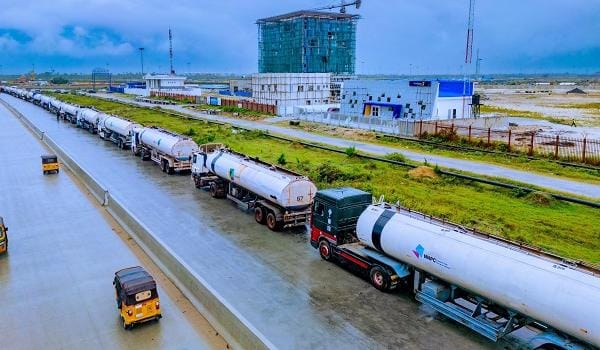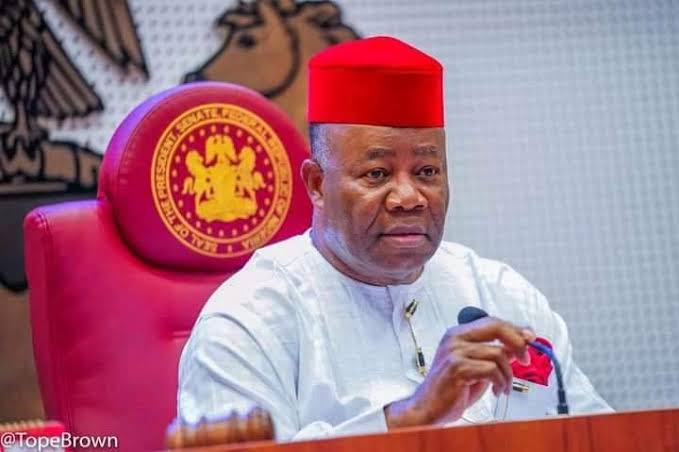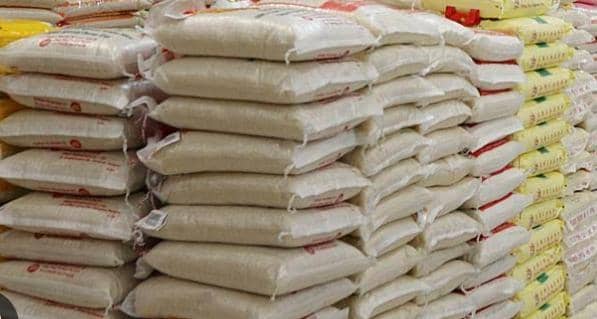The estimated landing cost of Premium Motor Spirit (PMS), commonly known as petrol, in Nigeria has seen a decline of ₦36, dropping to ₦900.28 per litre as of Thursday.
This marks a 3.62% decrease from the previous week’s landing cost of ₦936.75 per litre, according to data released by the Major Energy Marketers Association of Nigeria (MEMAN). Interestingly, earlier this week, costs had even dipped further, reaching ₦890.43 per litre.
This reduction in landing cost reflects some relief from fluctuations in global oil prices and improvements in supply chain dynamics. Despite this decrease, the retail price of petrol in Nigeria remains significantly higher at ₦1,060 per litre, which has raised concerns over the continued high prices for consumers at the pump.
While the decrease in landing costs indicates a shift in the dynamics of petrol pricing, it also highlights the difference in the cost structure of imported petrol versus domestically refined products. Notably, imported petrol is still relatively cheaper than domestically refined petrol when regulatory fees are excluded. This disparity continues to be a point of contention as Nigerians face high fuel prices despite local refining efforts.
– Imports Surge Despite Domestic Refining Capacity
Between December 10 and December 13, 2024, a total of 90,308 metric tonnes of petrol, equivalent to approximately 121.1 million litres, were imported into Nigeria. Four vessels were involved in delivering this supply, which arrived at various ports in Lagos, Rivers, Cross River, and Delta States. This importation is a reflection of Nigeria’s ongoing reliance on imported petrol, despite significant investments in domestic refining capacity.
The importation included a number of notable shipments:
AYM Shafa imported 15,000MT (21.12 million litres) on December 10, which arrived at Warri Port aboard the Stellar, managed by Peak Shipping.
Kriti Ruby brought in 37,308MT (50.03 million litres) on December 12, arriving at Apapa Port and handled by West Atlantic Port Services.
St Lady Meenah berthed at Rivers Port on the same day, delivering 23,000MT (30.84 million litres), managed by ULOB.
Virgo 1 is expected to deliver 15,000MT (20.12 million litres) at Calabar Port today, handled by WAPS at Dozzy Oil and Gas Services Terminal.
– Domestically Refined Products and Price Discrepancies
Despite the drop in landing costs, domestically refined petrol continues to be more expensive than imported fuel. The Dangote Refinery, which has been heralded as a major step toward reducing Nigeria’s reliance on imported petrol, is currently selling its refined petrol at ₦970 per litre. Meanwhile, petrol from the Port Harcourt Refining Company is priced at ₦1,030 per litre.
These prices, particularly from the domestic refineries, exceed the cost of imported petrol, raising concerns about the efficiency and economic viability of Nigeria’s domestic refining sector. The high prices of domestically refined petrol have prompted questions about the factors contributing to these costs, especially given the vast resources allocated toward improving local refinery infrastructure.
Several factors have been identified as contributing to the high cost of domestically refined petrol:
Crude Oil Prices: The price of crude oil, which is the primary raw material for petrol, plays a significant role in determining the final cost of the product. Brent crude oil, which serves as the global benchmark, has seen fluctuations in recent weeks. As of the latest data, the price of Brent crude stood at $73.52 per barrel, up slightly from the previous day’s figure of $72.06 per barrel.
Exchange Rates: The cost of importing and refining petrol in Nigeria is also impacted by the exchange rate, as many refining operations, including purchasing crude oil, are dollar-denominated. The strength or weakness of the Nigerian naira against the dollar can cause significant variations in refining costs.
– Local Refining Costs: Domestic refineries face significant operational costs, including maintenance, the procurement of refinery components, and the importation of certain chemicals and additives that are not produced locally. These factors make locally refined petrol more expensive compared to imports, even with the recent reduction in the landing costs of imported fuel.
– The Role of Imported Petrol and Ongoing Supply Dynamics
Despite the ongoing investments in local refining, the consistent importation of petrol suggests that Nigeria’s domestic refineries are still not able to meet the country’s fuel demand. This reliance on imports is at odds with earlier claims by some oil marketers that they would cease importing petrol in favor of local supply. However, the continued importation of petrol suggests that local refineries are still facing challenges in producing sufficient quantities of refined products.
The Nigerian government has made strides in its efforts to reduce reliance on imported fuel by investing in refineries like the Dangote Refinery, which is expected to significantly impact domestic petrol supply when it becomes fully operational.
However, until these refineries achieve full capacity, Nigeria’s fuel supply will continue to depend heavily on imports, which are often subject to global price fluctuations.
– Implications for Consumers and the Economy
The persistent gap between the landing cost of imported petrol and the retail price at the pump presents a major challenge for the Nigerian economy. Despite reductions in global oil prices and landing costs, Nigerians continue to face high fuel prices.
This situation puts pressure on consumers, many of whom are already grappling with the broader economic challenges in the country, including high inflation and unemployment.
As the Nigerian government seeks to balance the need for a functional domestic refining sector with the realities of the global oil market, it must address the inefficiencies that continue to drive up fuel prices.
Ensuring that domestic refineries operate at full capacity and at competitive prices will be crucial in reducing the nation’s dependence on imported petrol and ultimately providing relief to consumers at the pump.
While the recent decline in landing costs provides a glimmer of hope, it remains to be seen whether the government will be able to leverage this change to lower retail petrol prices in the near future, or whether the inefficiencies in domestic refining and global market factors will continue to drive up costs.
WARNING: If You Are Not 18+, Don’t Click The Link Below 👇🫣
https://headacheaim.com/kx6iepv2qm?key=6c14bd1d68e1eba721851f19778f5efe
https://zireemilsoude.net/4/5193489
Please don’t forget to “Allow the notification” so you will be the first to get our gist when we publish it.
Drop your comment in the section below, and don’t forget to share the post.
Never Miss A Single News Or Gists, Kindly Join Us On WhatsApp Channel:
https://whatsapp.com/channel/0029Vad8g81Eawdsio6INn3B
Telegram Channel:
https://t.me/gistsmateNG



